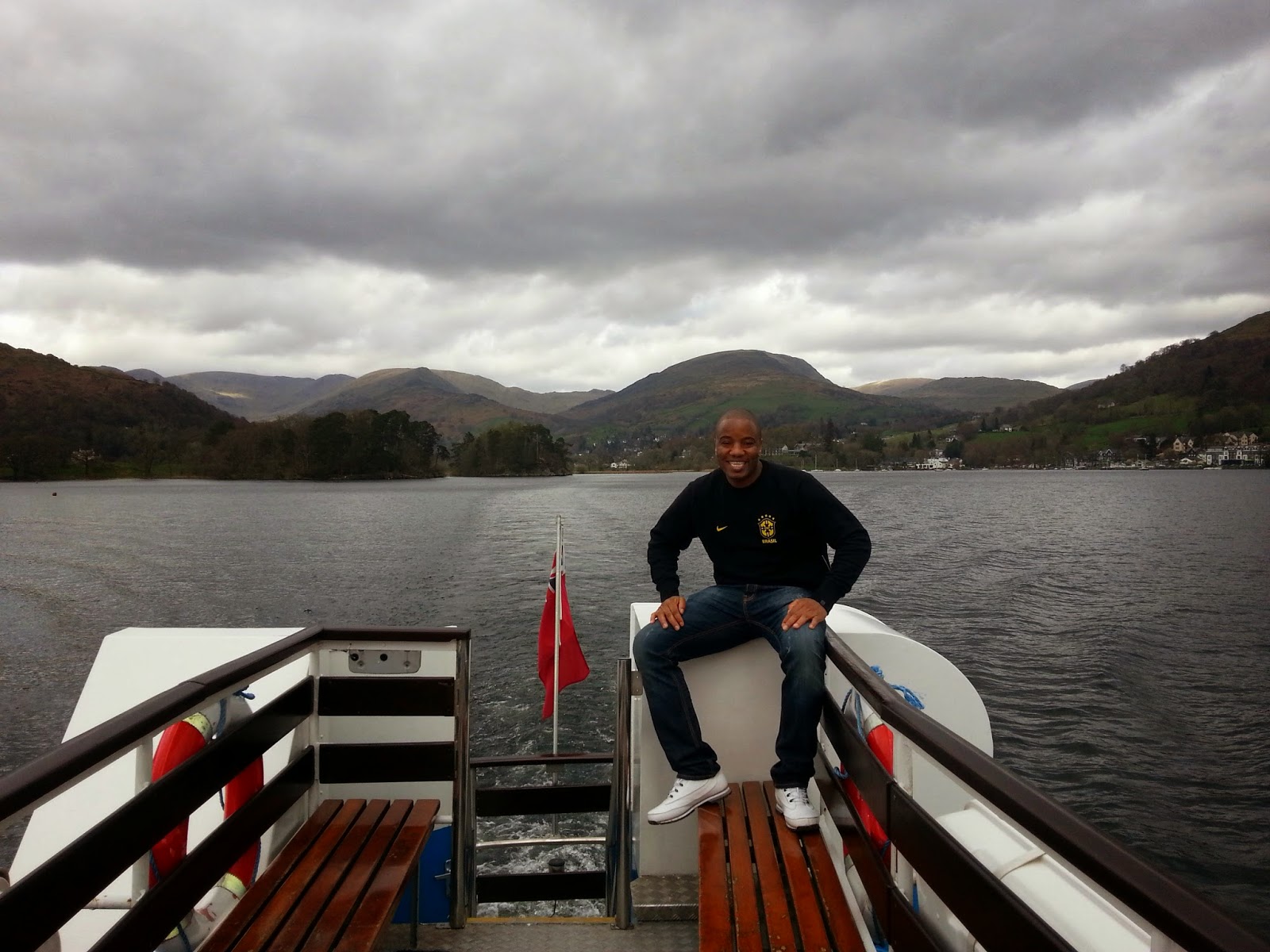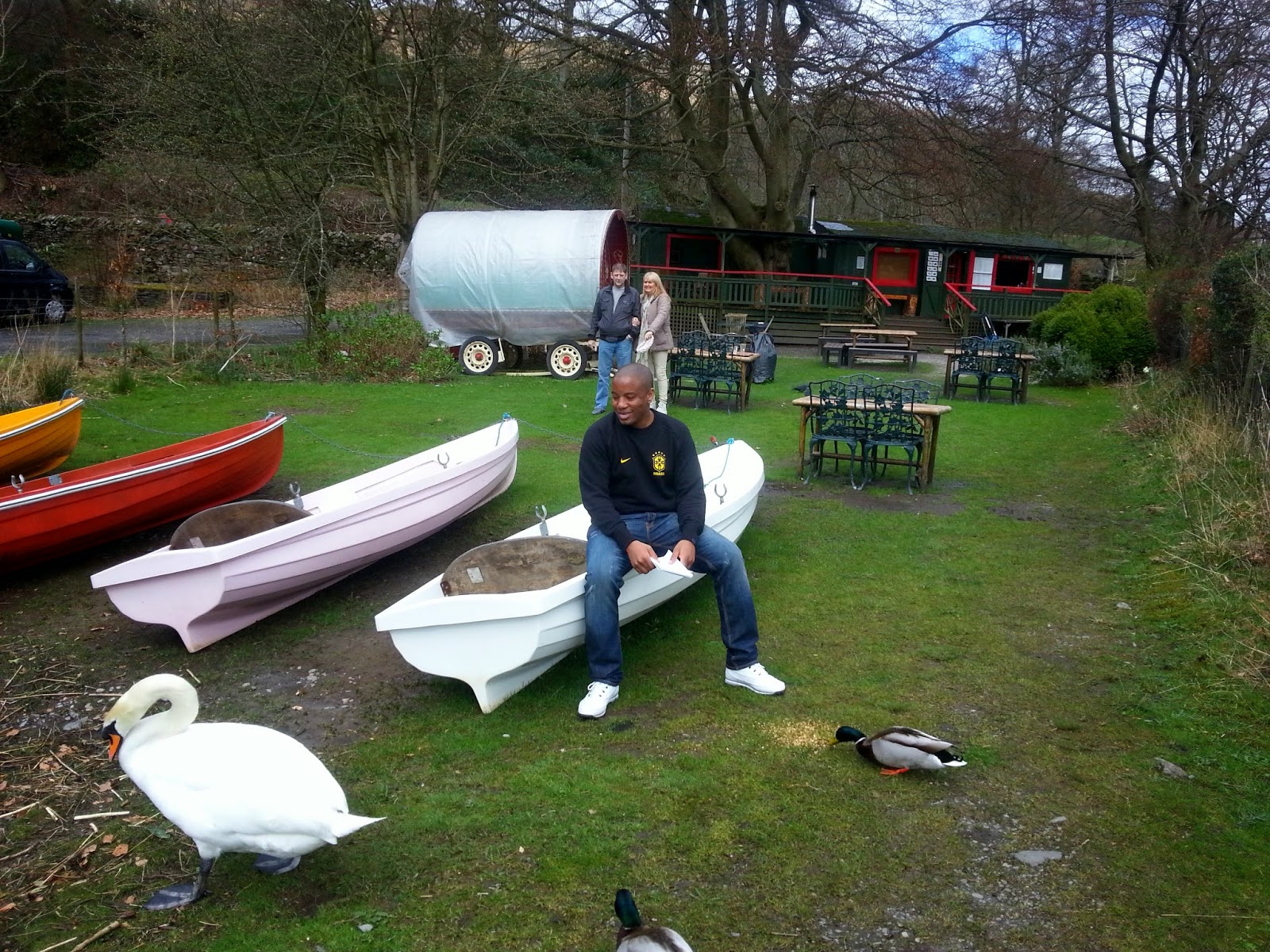"The State is the name by which we call the great human conspiracy against hunger and cold, against loneliness and ignorance; the State is the foster-mother and warden of the arts, of love, of comradeship, of all that redeems from despair that strange adventure we call human life" - Thomas Michael Kettle, 9 February 1880 - 9 September 1916.
 |
| Durhan University Palace Green Library, 2014 |
by Kudakwashe Kanhutu
Can we consider the modern state as the best ‘tool’ to preserve order and justice within a territory?
The question as to whether the State is the best organizing principle in international affairs arises because of the existence of failed states, wars between states and, states that routinely abuse the human rights of those it should be protecting. In all of modernity, blame for the horrors of the Holocaust and the Two World Wars has been laid squarely on the doorstep of the State system which can mobilise for industrial wars and is able to unleash violence that individuals in a state of nature could not possibly bring to bear. This issue requires us to investigate the reasons why states came into being and whether they are satisfying those reasons. It has to be posited from the outset that not all states are failing to provide order and justice; this would then tilt our enquiry towards the question what kind of state is best for the preservation of order and justice? If we go down that path, then we will essentially be comparing Hobbes’s authoritarian state with John Locke’s liberal democracy.
The State of Nature:
The State is the centre of power and the organizing principle in the modern age. The logic that justifies the existence of the State is that: life would be infinitely worse for everyone in a society where individuals are unrestrained by the law and by the threat of punishment. The existence of the State then answers the questions ‘who gets what?’ and ‘says who?’ The first of these questions is about the distribution of rights and material goods. The second question is about who should hold the power to decide the distribution of public goods.
The idea that life would be infinitely worse without the state to provide order and justice was pondered by such thinkers as Thomas Hobbes, John Locke, and Jean-Jaques Rousseau and they used the state of nature metaphor to elicit what would ensure. To the likelihood of living in a state of nature, Thomas Hobbes famously argued “there is no place for industry or the arts…. and worst of all continual fear and danger of violent death; and the life of man, solitary, poor, nasty, brutish, and short.” He presumed, correctly, by being a witness to the English Civil War, that without a common power to settle disputes, to offer physical security and punish offenders, life was unbearable as everyone would be in severe conflict with each other. Whatever individuals possess, others may desire and will take by force; and even those who have nothing are in danger of a pre-emptive strike, or a strike just to enhance the reputation of the attacker. The way out of this predicament for Hobbes is to institute a sovereign who will severely punish the offenders and if the sovereign is effective in keeping people to the laws, then and only then, can no one have reasonable suspicion that others will attack. The State is supposed to provide this umbrella of safety.
John Locke, considering the same subject thought that, in contrast, it was possible to live an acceptable life even in the absence of government. But Locke’s arguments though less pessimistic than Hobbes,’ he still comes to the conclusion that law needs an enforcer. Their only difference is that Hobbes would have accepted an authoritarian state, while what Locke argues for, is what is now called a liberal democracy.
The only people who think a state can be done away with are anarchists who believe humans are perfectible and can live without the need for government. They aver that governments are not the appropriate remedy for anti-social behaviours as they are the causes of the malaise in the first place. It is a dissenting voice worth noting only insofar as we have said above that some governments have breached the rights they are meant to be protecting.
The Effective State:
As the preceding section has attempted to show, the existence of the state is justified on the count that there are no real alternatives to it. The question can be asked then what makes an effective state. States seem to have been created out of war, and the victors then evolved mechanisms that awarded them legitimacy so as to obviate the real risk of insurrection every few years. In the experience of the United States, the end of the fighting resulted in a Constitution that has a separation of powers between the three branches of government and, importantly, regular democratic elections whereby leaders may be peacefully changed.
The state created in this sense then can be argued to have the important attribute Max Weber identified for effective states. He identified it as possessing a monopoly of legitimate violence within a territory. Such a state also accepts the responsibility of protecting everyone who resides within its borders from illegitimate violence. Citizens forfeit the right to protect themselves only on the understanding that they do not need self-protection: the state will do what is necessary for them. This kind of state then exists and is legitimate because of the social contract arguments of tacit, voluntary and hypothetical consent. It promises security and distributive justice and it delivers, where it fails there are mechanisms for peaceful change of leadership.
A Weberian state with an effective monopoly on violence is one where stability may be found, whereas in the absence of that, a state is only a state in name and its territory tends to resemble what is described in the Hobbesian state of nature metaphor.
The Ineffective State:
The state that brings into question whether something else would not better serve the people is the authoritarian state, with its attendant practices of denying human rights, denying safety of persons and denying distributive justice. This type of state is unwilling to protect the rights of people. The other kind is the failed state, which is unable to preserve order and justice within its claimed territory.
The distinctions we are making between effective and ineffective states can be further coaxed out if we consider what the differences are in the creation of these states. If we accept the unilinearity argument as valid then we are witnessing in the turmoil in the failed states and nascent democracies, the very stage of creation the now effective states went through in their development. The Zone of Peace and Zone of Turmoil argument subsists at this point. In this argument, the Global North is seen to working according to the Lockean logic whereas the Global South is seen to be working according to the Hobbesian logic. The argument further is that, to a greater degree, the countries in North’s states have managed to provide order and justice to their polities because they already passed through their turmoil phases necessary to create a strong state.
In contrast, the Global South is said by Ayoob Mohammed to be at the formative stage and thus characterised by the failures in the provision of order that make it to the news headlines. This attempt to create a strong state in its territory is then undermined by the challenges of globalization and universal human rights regimes and threats of intervention by outside powers. The result is these states remain malformed, fragile and very ineffective. The paradox here is that democracy cannot thrive in the absence of political order which only a strongly entrenched state can provide.
Responsibility to Prevent:
In conclusion then, yes it is true: modern states possess a built-in paradoxical tendency to undermine the very order and justice they are constituted to protect. However states are justifiable because there is no viable alternative to it. The Palestinians believe achieving a state for themselves will bring order, justice and dignity to their lives. Territories without state pacification exhibit the nightmare scenario envisaged in Thomas Hobbes’ state of nature metaphor, while states in the North where strong effective states have control over territory exhibit the Lockean logic of equal, free and independent citizens with access to property and some dignity. As for states that abuse human rights, they are not a sufficient argument for thinking the state system ought to be abandoned. They are never in the majority, so remedies such as those proposed in the Responsibility to Protect (R2P) doctrine, if instituted without ulterior motives, should assist in correcting the defect of states failing to provide order and justice in the modern age.
 |
General Sir Richard Dannatt with us at Durham University's School of Government & International Affairs.
|
Notes:
Wolff, Jonathan (2006), An Introduction to Political Philosophy. Oxford: Oxford University Press.
Wolff, Jonathan (2006), An Introduction to Political Philosophy. Oxford: Oxford University Press.











































































